Prairie Spirit Alpacas, an alpaca farm in the foothills near Millarville, is home to 150 sweet alpacas and a wool shop where you can purchase luxurious alpaca wool and handmade woolen goods.
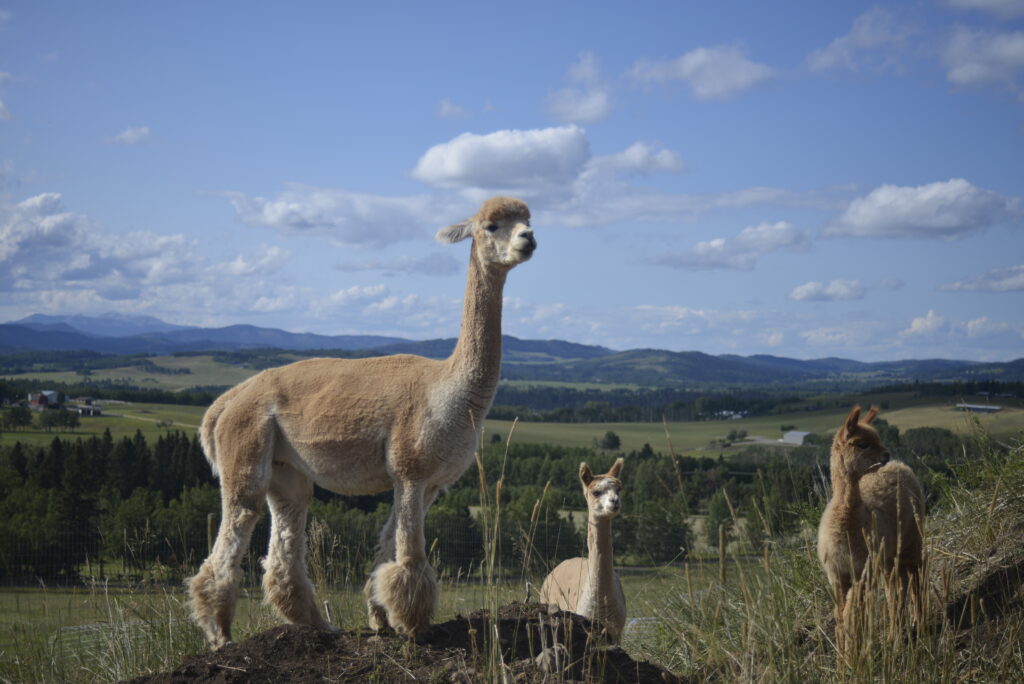
The drive to Prairie Spirit Alpacas – down the Cowboy Trail, and through the foothills – is beautiful, but the view from the farmhouse at the top of the hill is stunning. With green meadows surrounded by trembling aspens and the Rocky Mountains as a backdrop, it’s a pretty and peaceful country retreat. Carmen Jadick, the owner, breeds and raises Huacaya (pronounced wah-kay-ya) alpacas here, a breed which is renowned for its luxurious fleece. We’ve come to visit the alpaca babies and pick up some locally-grown alpaca wool.
Partnership Disclosure: This story was sponsored by Prairie Spirit Alpacas, but all words and opinions are my own.
Meet the Alpacas
When we arrive, Carmen and her dog Jenny come to greet us at the gate. “Sorry about this,” Carmen gestures at her dirty shirt, “I was covering the tomatoes and I’ve just been so busy; I have two bottle babies.” The bottle-fed (alpaca) babies were born in May and didn’t get enough colostrum from their mothers, so they’ve needed extra care to grow big and strong. “Do you want to meet them?” Of course we do!
We head into the barn to meet the alpaca babies and instantly see why their Spanish name cria means “God’s creation.” Oh-so-soft-and-fluffy, they have the longest eyelashes and sweetest demeanor. Carmen gently places baby Rhianna in my lap, and to my surprise, she doesn’t squirm as I pet her. Although she’s only a few months old, her fleece is thick already. “Some places shear them in their first year,” Carmen says, “but I think it’s too cold here [in Alberta] so we’ll wait ’til next year.” We give little Rhi-rhi all the cuddles, then snuggle some of her friends.
The herd members constantly communicate with each other, so the barn and field are full of hums and clicks. If you ask me, their humming sounds like closed mouth mooing. It’s not overly loud since the alpacas are content. They’re essentially checking in with each other and keeping tabs on little ones that have wandered out of sight – and maybe mentioning, “Hey, we have visitors.”
“Do they ever bite?” I ask as my kids hold out long pieces of grass to the alpacas. “No,” Carmen replies, “they can’t, they only have bottom teeth.” Who knew?! It’s not really in their nature to bite anyways, unless threatened. They’re gentle creatures that get along well with goats and other livestock, and their human families.
After meeting the mamas and babies, Carmen gives us some alfalfa pellets so we can feed the alpacas. At the sound of pellets tumbling into the trough, the alpacas come running. Their excitement is almost comical in contrast to how chill they were moments before. They remind me of kids chasing an ice cream truck! Once every last pellet is gone, some resume resting in the shade, while others wander into the meadow to graze.
Carmen Jadick & Ariel | Image Credit: Prairie Spirit Alpacas
About Prairie Spirit Alpacas
Prairie Spirit Alpacas is home to 150 Huacaya alpacas. When I ask Carmen how she got started, she laughs and says “I don’t know!” She started with three alpacas, fell in love with them, and kept buying more, then started breeding and showing them. Now, she has Champions in the herd that are known for fineness (a quality of the fleece), (fibre) density, and conformation of color.
Although Carmen knows all the alpacas’ names and tends crias ’round the clock when needed, she still somehow has time to process the fleece/yarn! After the alpacas are shorn in the spring, Carmen sorts the fleece, sends it out to be spun into wool, then hand dyes batches of it. She sells natural and dyed wool, socks, teddy bears, woven scarves and more at the farm, farmer’s markets, and online (more on that below).
About Alpacas
Alpacas are camelid mammals native to South America. Smaller than llamas, they are raised for their soft and warm wool. Huacaya alpacas have thick fleece and are suited to living at high elevations in the Andes, so they fare well in Alberta. A cool thing about alpacas is that they have many different colors of fleece so you can make several different natural shades of wool from their fleece.
Prairie Spirit Alpaca Wool & Woolen Goods
If you’re looking for high quality alpaca wool that is Canadian grown, spun, processed and dyed, check out Prairie Spirit Alpacas’ online store or farm shop! They have a wide selection of natural alpaca wool (22 shades), hand dyed wool, cria wool (a baby alpaca’s ultra-soft first fleece), hat / mitt / shawl / wrist-warmer / sweater kits (everything you need to make one project); and one-of-a-kind woolen goods including socks, teddy bears (knitted with alpaca wool and stuffed with alpaca fleece), handwoven scarves, duvets, and dryer balls.
Benefits of alpaca wool: it is soft and hypoallergenic, lanolin-free (so it is not processed with harsh chemicals), naturally flame resistant, antibacterial (reduces odor in socks!), machine washable, “approximately 2X warmer than wool & 2.5X warmer than synthetic material,” and “water resistant with only 8% moisture retention vs 30% for wool.”
Know Before You Go / Plan Your Visit
Prairie Spirit Alpacas accepts farm visitors by reservation only on Saturdays from 10 am to 3 pm (last admission at 2 pm). Please message Prairie Spirit Alpacas’ Facebook page to book your visit. Admission by donation.
There’s a covered picnic area at the farm if you’d like to bring a packed lunch.
Please do not bring dogs (they scare the alpacas).
For More Information
For more information, visit Prairie Spirit Alpacas.
Getting Here
Prairie Spirit Alpacas is located at 370002- 264 Street, West Millarville, Alberta. Click here for Google Maps directions.
Directions: Take 22 south from Millarville, then turn right (go west) on 228 after the bridge at Three Point Creek, Follow 338 west then south turn east on 370 then south on 264. It’s the second driveway on the left. The house is on top of the hill.
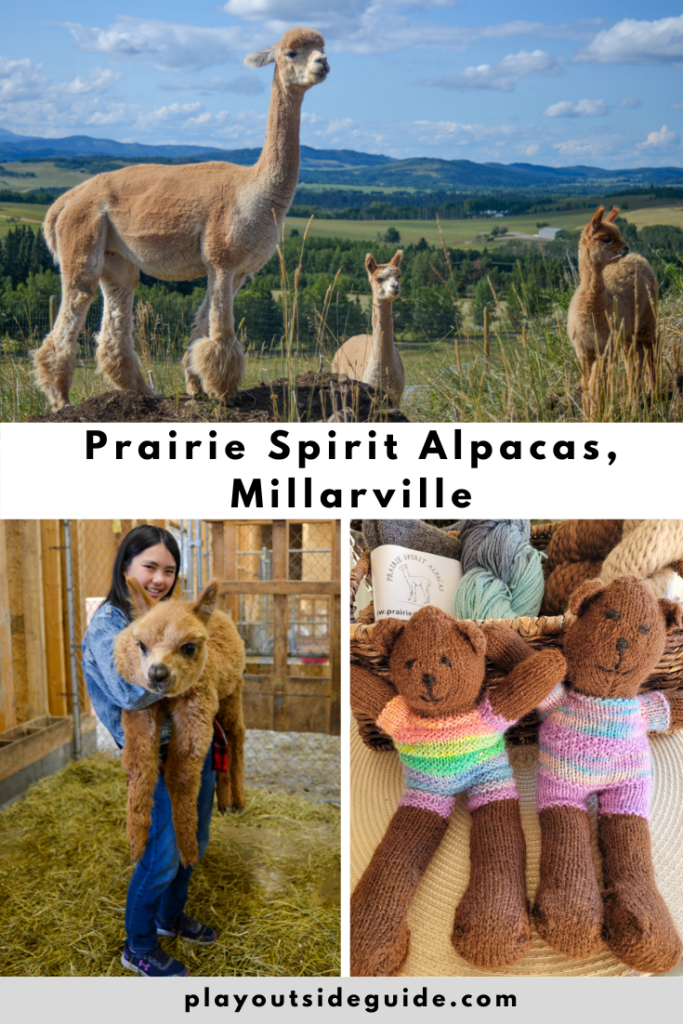

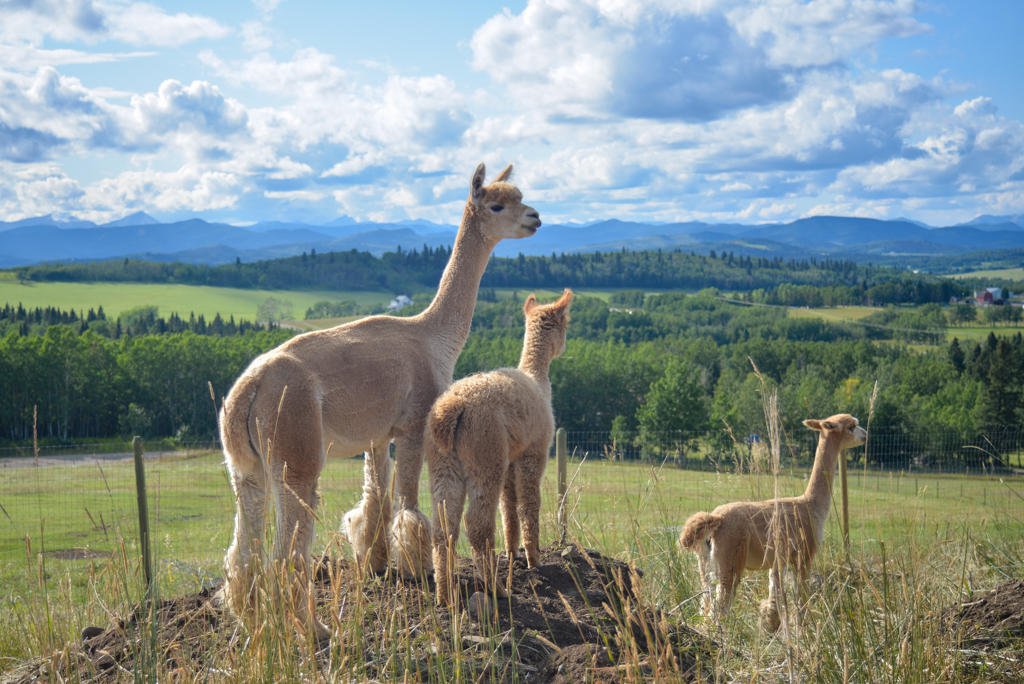
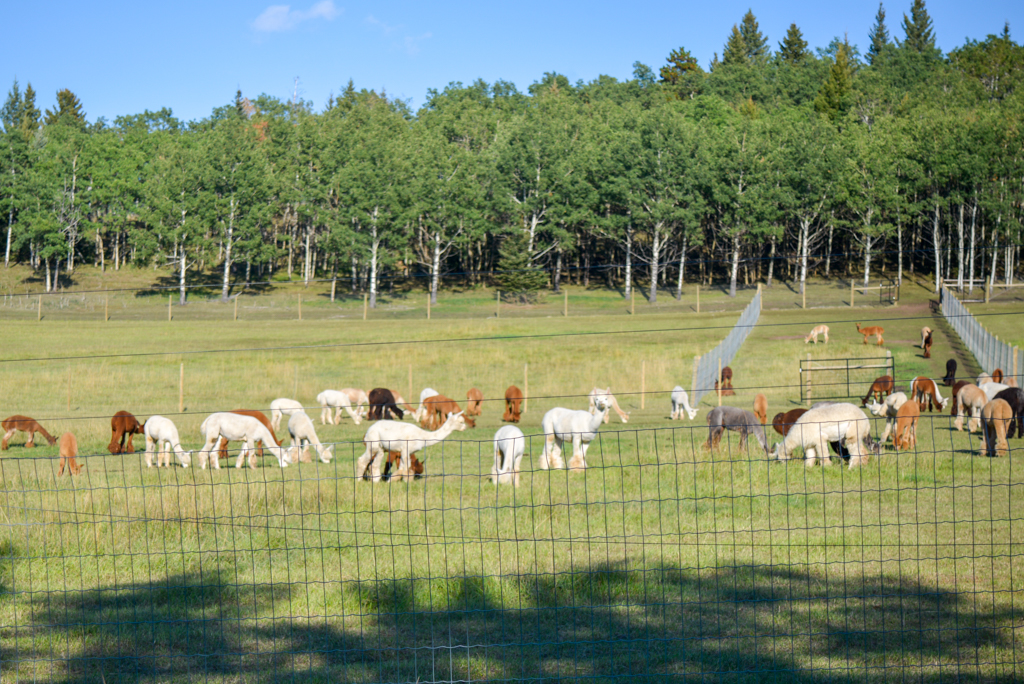
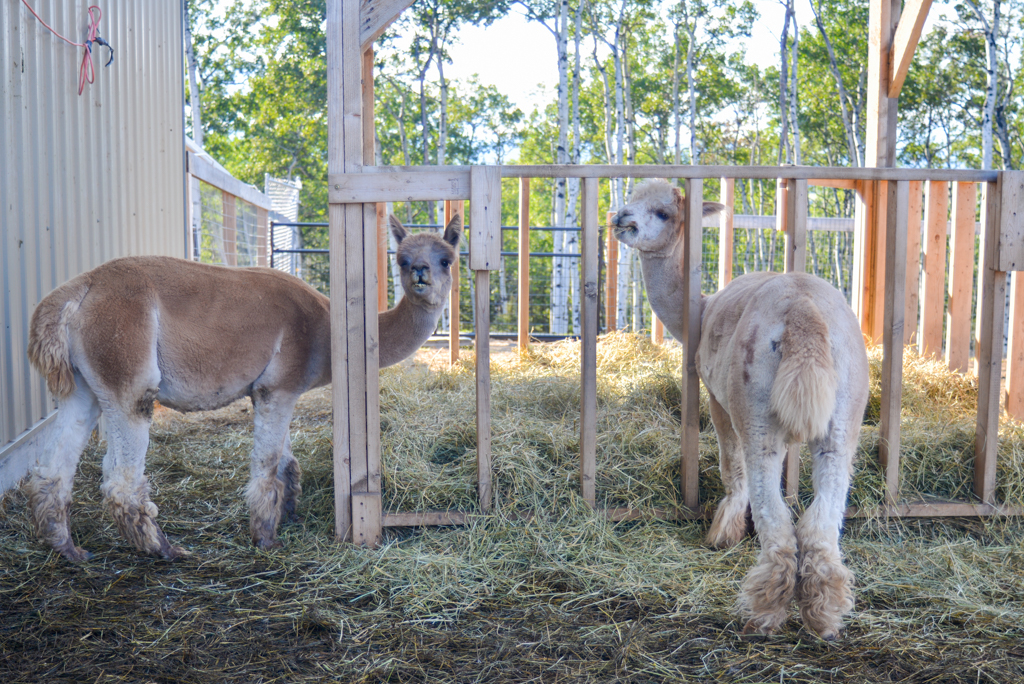
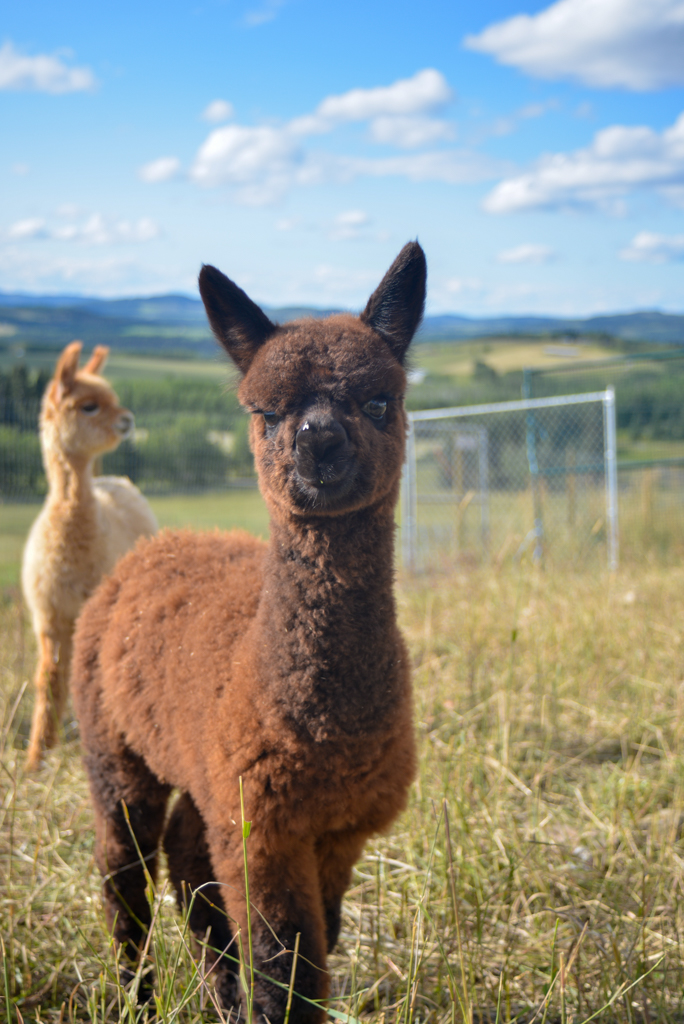
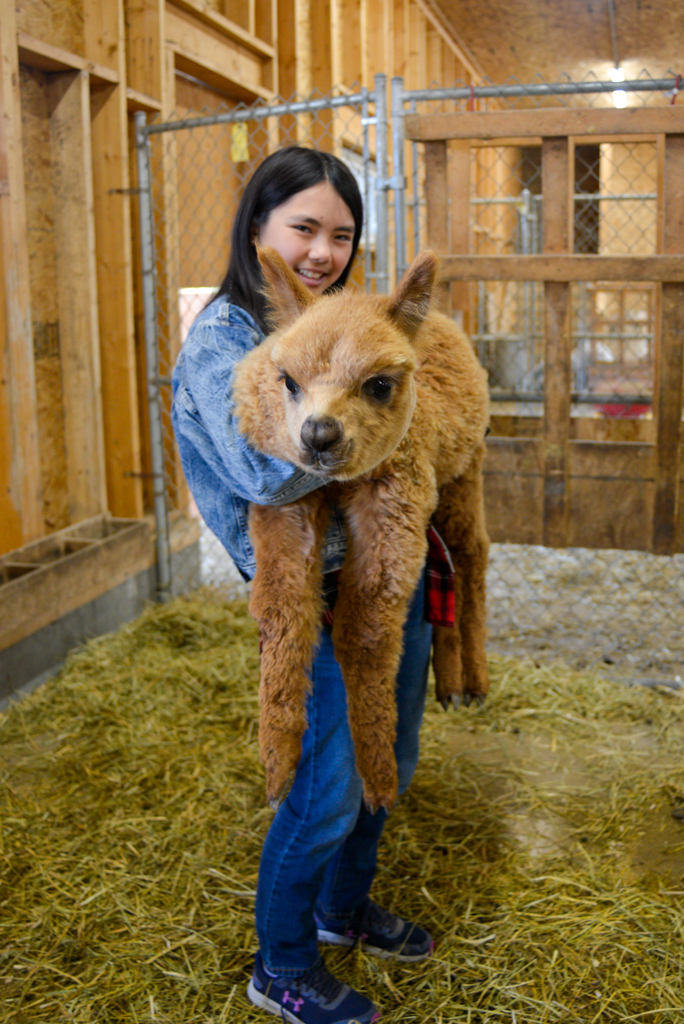
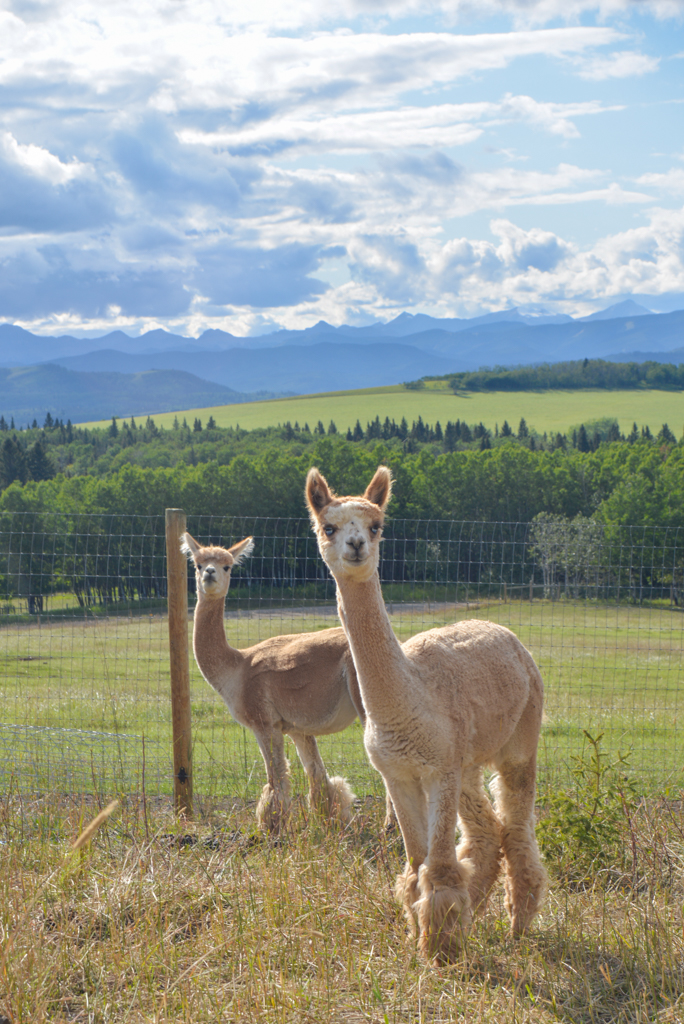

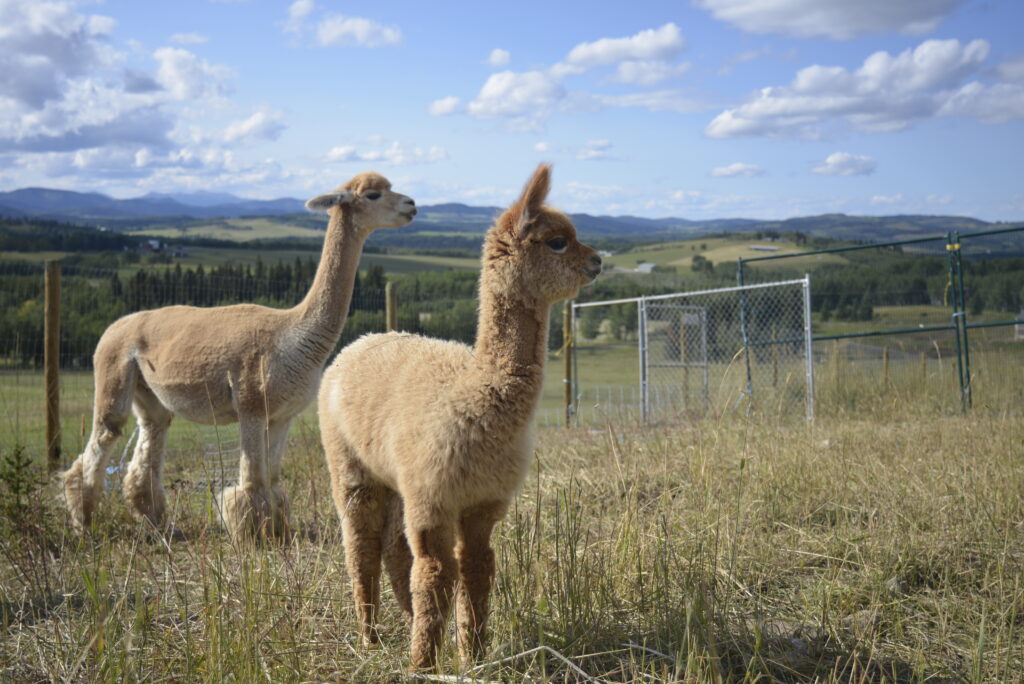
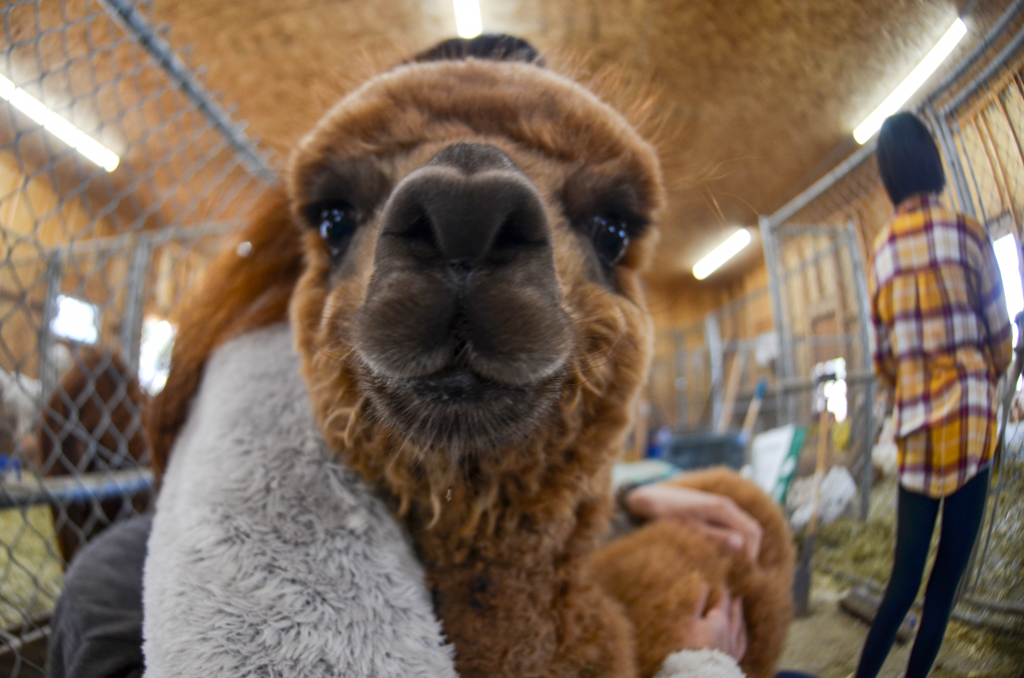
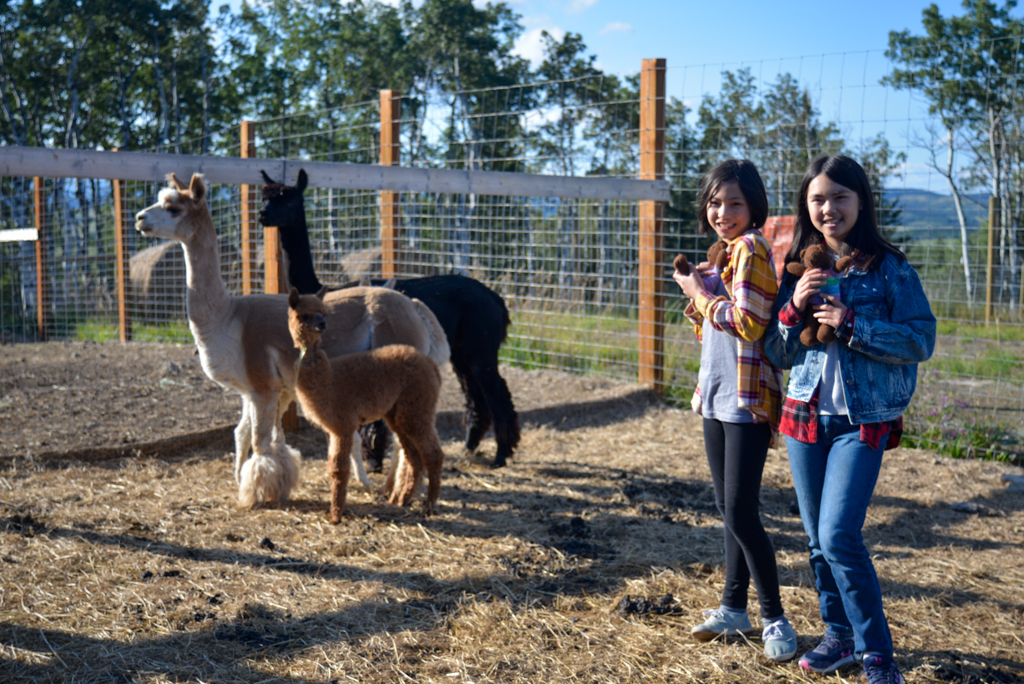
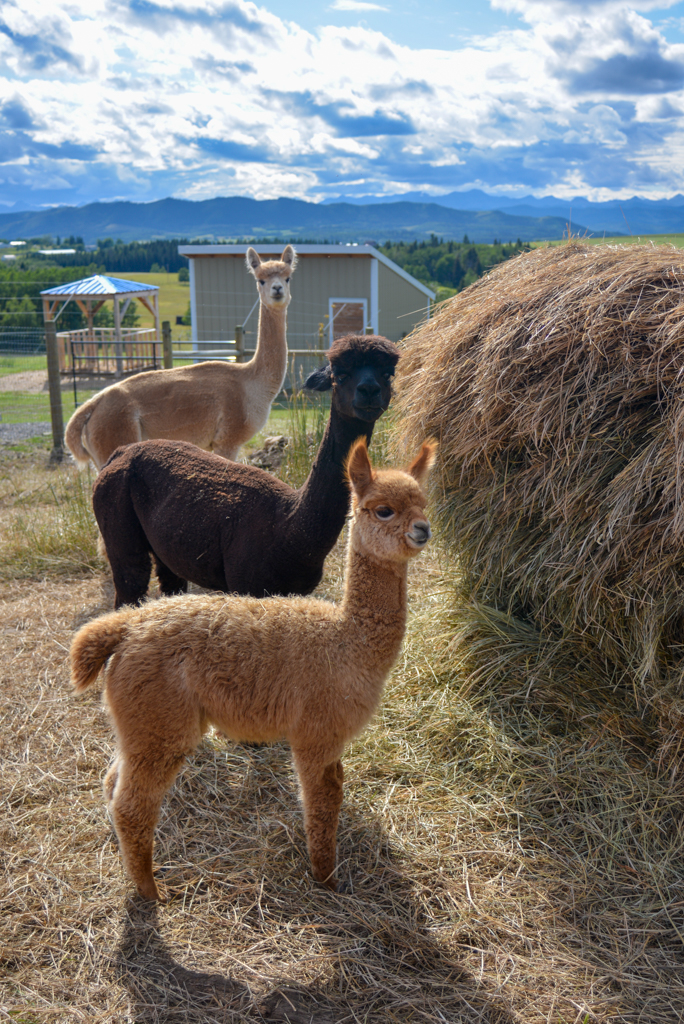
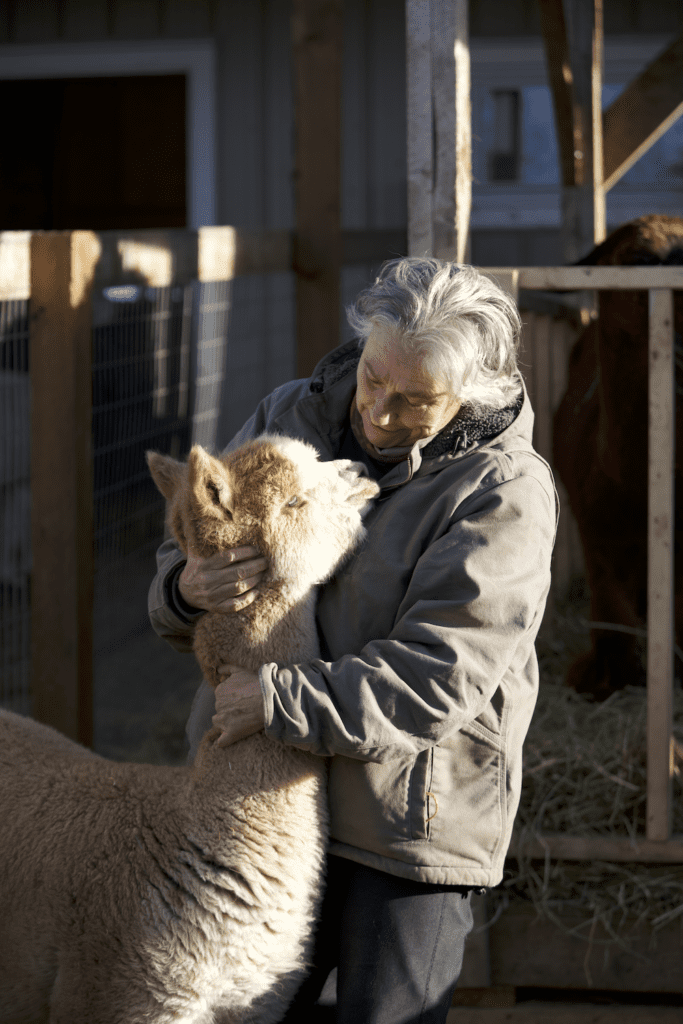

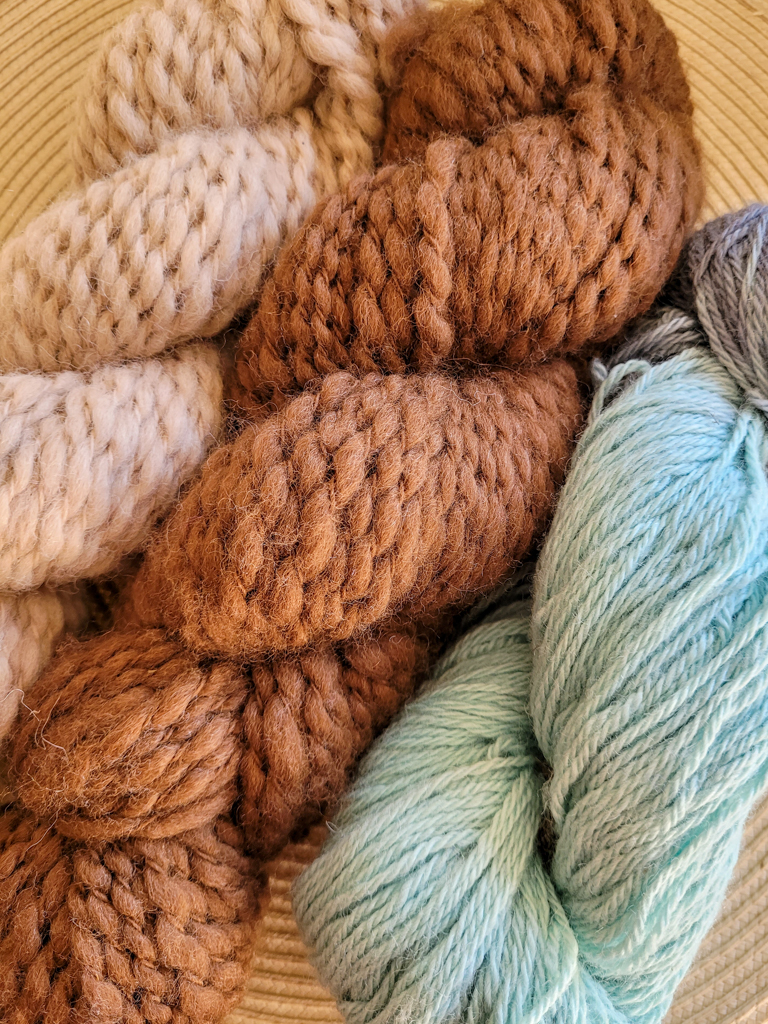
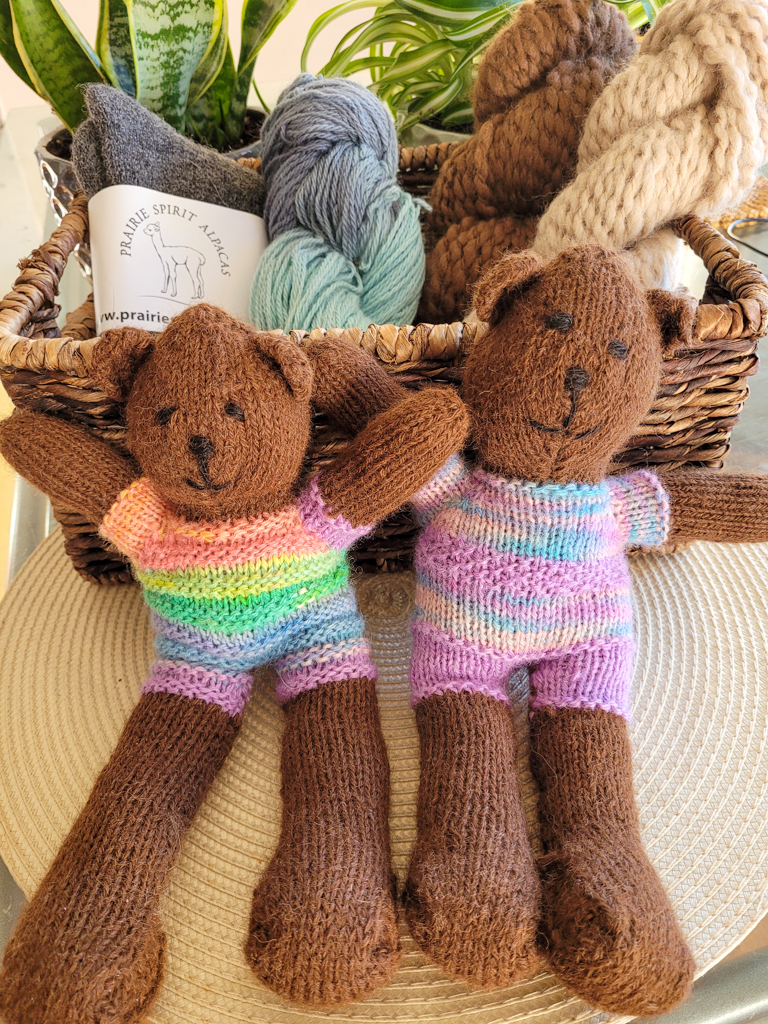
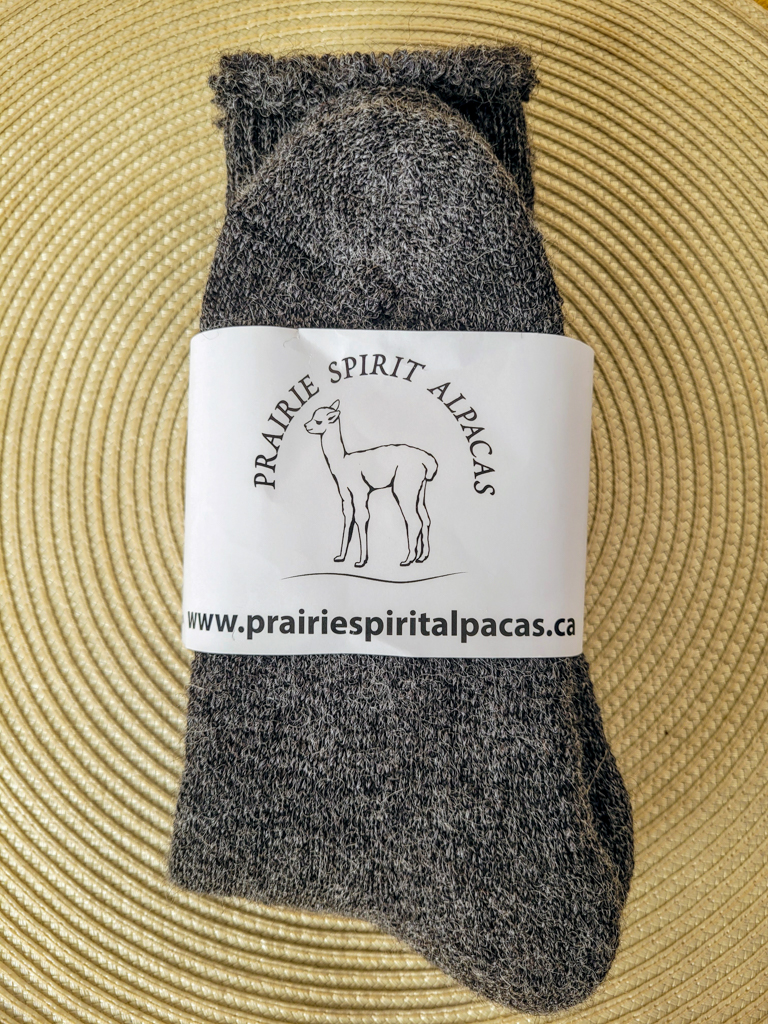

1 comment
[…] Source link […]
Comments are closed.